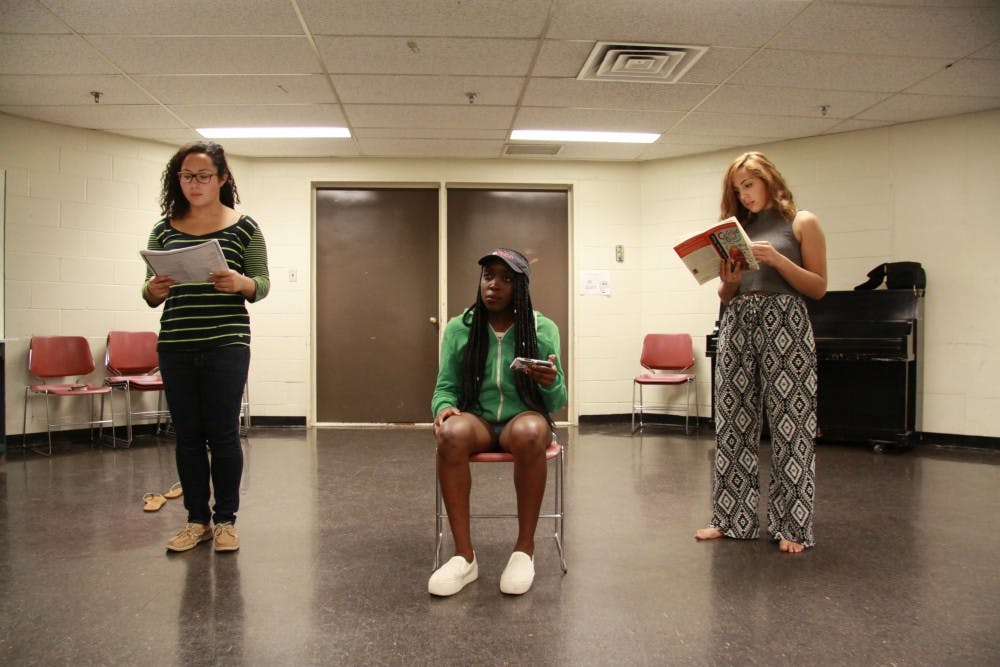Coming this fall, Penn’s theater group the African American Arts Alliance (4A) is presenting the multimedia production of “For Colored Girls”.
The show is most known from the Tyler Perry movie version from 2010. However, the directors and 4A board have decided to use the original script written by Ntozake Shange. The entire play is through the perspective of the actresses, who interpret the actions of the male actors who remain silent. This amplifies the female voice.
4A produces plays that are written for or by people of color. They play a big role in the minority community on campus and host various events throughout the year, such as open mic nights and collaborations with other organizations to promote unity and equality for minorities.
“It’s about empowerment of black people and black excellence through the arts,” said Wharton sophomore Sydney Rodriguez, a producer and board member of 4A.
College sophomore Kai Kornegay says that she was inspired to join 4A because she felt that she wasn’t just typecast into stereotypical black roles. She feels that she is able to grow as a performer and an artist through the group.
In the weeks leading up to the play there will be various events put on by 4A and other collaborating groups to bring awareness to key issues in “For Colored Girls.”
The content of the play covers some deep themes that can be hard for students to talk about, such as rape, domestic violence and suicide. Workshops and open forums will allow actors and others interested in the show to express their feelings on the relevant issues that the play brings up including a workshop with Penn Anti-Violence Educators.
Not all of the events are focused on the serious conflicts addressed in the show. There are also plans for light, fun events in the works that are still relevant. 4A hopes to have a workshop on makeup for girls of color and black skincare. These less intense workshops are designed for those involved to de-stress.
A large focus of “For Colored Girls,” as the title implies, is to highlight the challenges of intersectionality that black women face as double minorities — black and female. The play tells about the struggles and triumphs of black women, as told from the perspective of black women.
“Our voice is usually erased from the greater narrative,” Rodriguez said.
This script is written much like a poem. There is meaning behind the indentations and emphasis on certain people and words that are most relevant. Much is left to the interpretation of the actors and directors, because there are no stage directions. The show will be held in the Prince Theater where there are no microphones, creating a level of intimacy between the audience and the cast.
Thus far, students have expressed interest and support for the play.
“What really inspired me was actually just the name of it, it’s about the issues that girls like me, being a colored girl, really face in society,” actress and College sophomore Gomian Konneh said. Konneh is playing the Lady in Brown, with her character’s name being very symbolic.
The full original name of the play is actually “For Colored Girls Who Have Considered Suicide When The Rainbow is Enuf.” All of the characters are colors in the rainbow, but as the color brown is not in the rainbow, the Lady in Brown represents a character on the outside, looking in.
The Lady in Brown provides comic relief for some of the difficult topics in the show.
Konneh highlights the fact that the narratives in the play are very real for women of color. “It’s one of the most challenging roles I’ve played because it is so connected to me,” Konneh said, “Being at the forefront of that narrative is a really empowering task.”
The show is designed to evoke emotion, and through that emotion, a feeling of sisterhood and unity.
As Kornegay describes, “Despite all of these challenges the characters in the play face, they rely on each other for solidarity and there are these moments of lightness when they find so much beauty and wonder from each other.”









